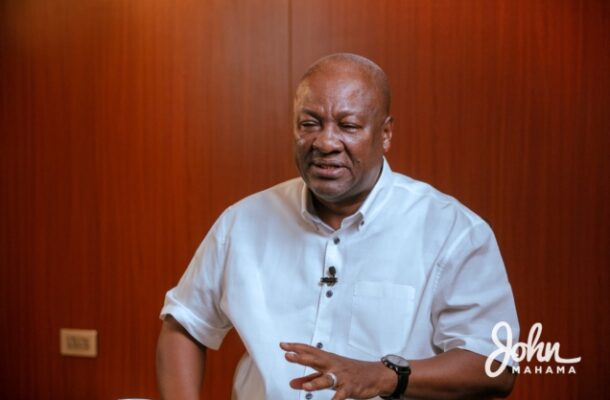President-Elect John Mahama's recent statement, emphasising that the NDC's decisive victory should not be taken lightly, rings true with a profound un
President-Elect John Mahama’s recent statement, emphasising that the NDC’s decisive victory should not be taken lightly, rings true with a profound understanding of governance. His assertion that “whom much is given, much is expected” encapsulates not only the weight of expectation placed upon his administration but also the fundamental principle of accountability inherent in a democratic mandate. Ghana’s people have spoken, and their resounding endorsement of the NDC necessitates a response characterised by both ambition and humility.
The magnitude of the victory itself underscores the depth of the people’s desire for change. It represents a significant shift in the political landscape, a clear expression of confidence – or perhaps a reclaiming of confidence – in the NDC’s vision for Ghana’s future. This trust, however, is not a blank cheque. It is a solemn responsibility that demands a proactive and responsive government. The people have entrusted their hopes and aspirations to President-elect Mahama and his party; the onus is now on them to translate this trust into tangible improvements in the lives of all Ghanaians.
The “much” that has been given extends beyond mere electoral success. It encompasses the inherent responsibility that comes with governing a nation grappling with complex challenges. From economic development and infrastructural improvements to education reform and healthcare accessibility, the expectations are multifaceted and deeply rooted in the everyday realities of Ghanaian citizens. The mandate received demands not only ambitious policy initiatives but also a commitment to transparency and effective implementation. The people expect concrete solutions, not empty promises.
One crucial area requiring immediate attention is economic empowerment. The path to prosperity must be inclusive, ensuring that the benefits of economic growth reach all segments of society, not just a privileged few. This necessitates a holistic approach that addresses unemployment, poverty, and income inequality. Furthermore, sustainable economic growth cannot be achieved without investment in education and skills development, equipping the workforce with the necessary tools to thrive in a competitive global market. The “much” expected includes a tangible demonstration of the NDC’s commitment to creating a vibrant and inclusive economy.
Healthcare remains another significant area where the people’s expectations are high. Access to quality healthcare is a fundamental right, and the new administration must prioritise improving healthcare infrastructure, increasing access to essential medicines, and strengthening the healthcare workforce. This requires substantial investment and strategic planning, aiming to create a robust and equitable healthcare system that serves all Ghanaians, regardless of their socioeconomic status. The “much” given necessitates a demonstrable commitment to improving the health and well-being of the nation.
Finally, good governance and transparency are paramount. The people expect an administration that is accountable, responsive and committed to upholding the highest ethical standards. This includes tackling corruption, strengthening democratic institutions, and ensuring that the rule of law prevails. The “much” given demands nothing less than a transparent and accountable government that works tirelessly in the best interests of the Ghanaian people.
In conclusion, President-elect Mahama’s insightful observation serves as a crucial reminder of the weighty responsibility that accompanies electoral victory. The people’s decisive mandate is not a license for complacency, but rather a call to action. The “much” given demands a government dedicated to delivering on its promises, addressing the needs of the people, and building a brighter future for Ghana. The coming years will be a critical test, not only for the NDC, but for the very future of Ghanaian democracy.

COMMENTS